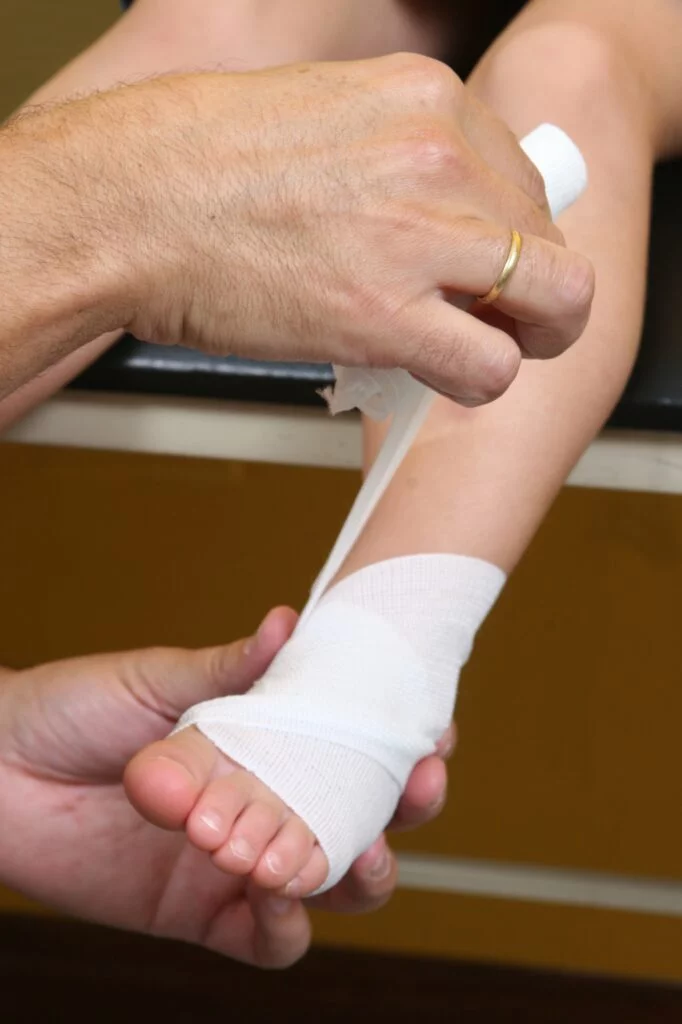Table of Contents
Overview
The Achilles tendon is located just above the heel and connects to your calf muscle. When your Achilles tendon is injured, it results in pain, swelling, stiffness, or in severe scenarios – the inability to raise the foot. Due to the location of the tendon, it plays a vital role in everyday activities as well as high impact movements. Walking, jumping, and running all heavily depend on the Achilles tendon.
Whether your Achilles pain has developed over time or come on suddenly from an injury or trauma, you need to see a podiatrist to avoid any further complications. Your University Foot & Ankle Institute board-certified podiatrist will thoroughly evaluate the severity of your condition and propose an appropriate treatment plan.
Achilles Tendonitis
When your Achilles tendon is irritated or swollen, it’s called Achilles Tendonitis. This is not a condition to ignore, or hope will get better on its own without medical oversight. With further use or damage to the tendon, the condition will worsen and may lead to a ruptured tendon.
The symptoms of Achilles Tendonitis include pain down the back of your leg and around your heel. You may also feel your tendon thickening or hardening or experience pain and swelling if you have small tears in the tendon’s fibers. The pain will also get worse when you are active.
Achilles Tendon Ruptures
If your Achilles tendon completely or partially tears, it’s called an Achilles tendon rupture. Often times, people will hear a pop from their heel or the back of their calf when it occurs. This situation requires immediate attention and possibly surgery.
If you believe you may have a ruptured Achilles tendon, call our office at (661) 254-0795 [hyperlink, please!] before you rush to the Emergency Department! We save space for medical emergencies, and you will have the comfort of knowing that you are working with a foot and ankle specialist – not a general doctor. As Achilles tendon injuries are often mistaken for ankle sprains, it’s imperative to get the correct diagnosis.
A podiatrist will complete a physical exam and order imaging tests (Ultrasound, X-Ray, or MRI) to determine the severity of your injury.
Treatment Options for Achilles Tendon Injuries
There is a wide range of treatment options, depending on the severity and diagnosis of your injury.
For Achilles tendonitis, your podiatrist may recommend any combination of the following: Rest, ice, anti-inflammatory medicine, functional devices – such as orthotics, a cast, splint, or walking boot, physical therapy exercises, shockwave therapy, and more.
For ruptures, your podiatrist may recommend surgery. The type of surgery will depend on the severity and the location of the tear.
Who is Most at Risk for Achilles Tendon Injuries?
Preventing Achilles Tendon Injuries
Be proactive in taking care of your Achilles tendons and save your future self the hassle! Some helpful tips to preventing injury are:
- Warm up before you do any exercise.
- Wear proper supportive shoes.
- Get fitted for custom orthotics, especially if you have flat feet or high arches.
- Gradually increase your activity level when trying new activities or sports.
- Exercise on flat surfaces.
- Stop any activity that causes you pain.
- Choose low-impact activities, such as swimming or cycling.
- If possible, avoid taking the antibiotic fluoroquinolone – though uncommon, a possible side effect of the medication can result in tendon ruptures.
Call our office today if you have an achilles tendon injury!


